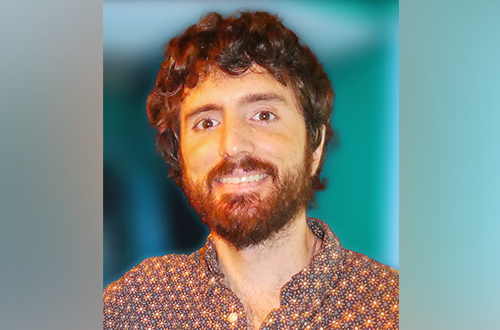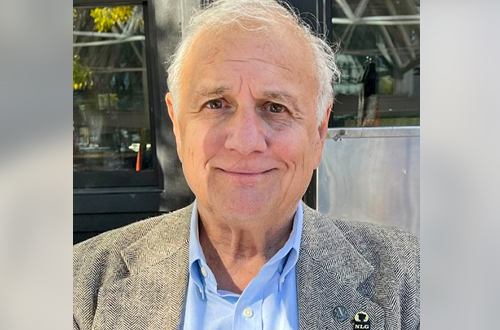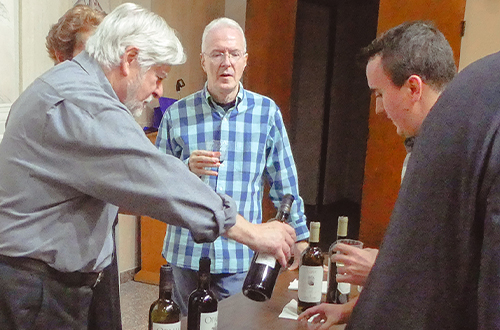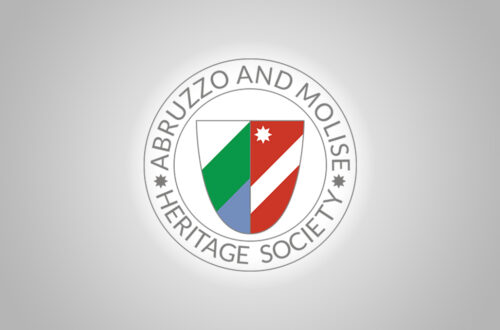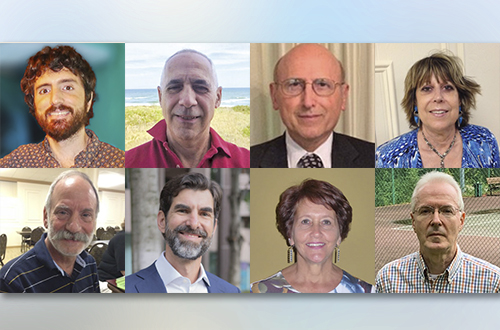-
A Message from the President
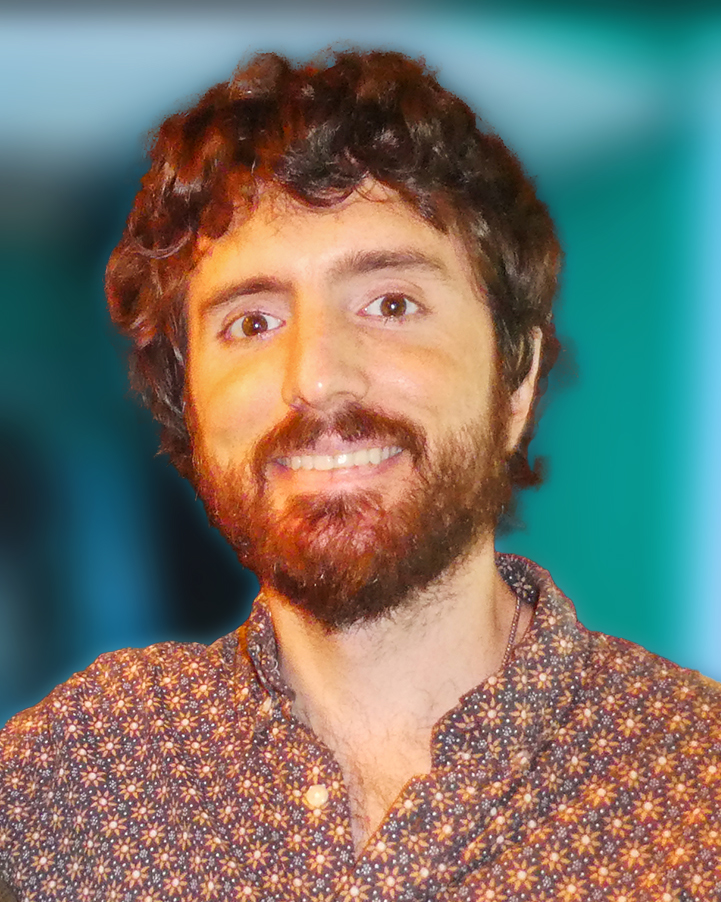
I am very honored to have been elected to be the AMHS President. I want to start by thanking Ray LaVerghetta for his service as President and for the service of all the board members and officers whose terms ended January 1st. As a volunteer organization, we are only able to exist due to the generosity and immense talent of those who serve on the board and in officer positions.
To recap our recent events, our annual wine tasting was on November 19th. As long-term members we now have been trying some different formats for this event and the most recent iteration was a tremendous success. The wine tasting was followed by our December holiday lunch at Osteria da Nino where we were treated to a delicious multi-course meal and great camaraderie. We were also reminded of the Monongah coal mining disaster, the anniversary of which was near to the date of our lunch. Lucio D’Andrea delivered a very informative short lesson on the importance of this event and the connection to our regions of focus.
In the upcoming year, we have several great events and activities planned. We will be bringing back the virtual film discussion series on January 14th with Jim Toscano. We will be starting with a discussion about a documentary on the Malocchio (Evil Eye). Our first Sunday luncheon will take place on January 28th when ancient coin expert, Michael Markowitz, whose mother was Italian, will speak to us about the evolution of Roman coinage from lumps of metal in 300 B.C. to gold Imperial coins in 476 A.D.
In February, our members will have a chance to visit the Kennedy Center for a performance by Italian-American comedian, Matteo Lane. Also in February, we will be having our first happy hour of the year. We will visit the recently opened and much acclaimed cocktail bar Grazie Mille (One Thousand Thanks). We also have a virtual genealogical event scheduled for March 10th.
As we start the new year, I look forward to continuing the successes of the society and laying the foundation for AMHS to be successful well into the future. If there are any ideas or improvements that you would like to share, please do not hesitate to reach out to me.
Best wishes for the new year!,
Chris Renneker
July 2024
-
Expert to Discuss Evolution of Roman Coinage
By Nancy DeSanti, 1st Vice President-Programs
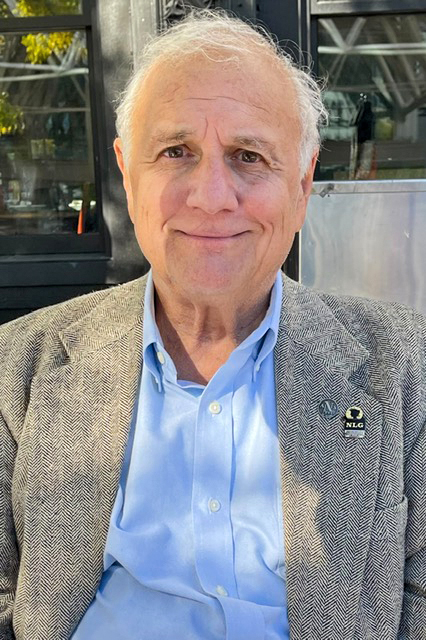
Michael Markowitz For the first AMHS program of the new year, members will be treated to an informative and entertaining talk, “Show Me the Money!” on January 28, 2024, at 1:30 p.m. The speaker, Michael Markowitz, is an expert on Roman coins. He will tell us all about the evolution of Roman coinage from lumps of metal in 300 B.C. to gold Imperial coins in 476 A.D.
Mike, who gave us a virtual talk last July, was born in New York City. His mother’s side of the family is Italian, while his father’s ancestors emigrated from Romania. Mike attended the University of Rochester, then the University of California, Irvine. He worked for many years in the aerospace industry in southern California before moving in 1991 to northern Virginia where he is a senior research specialist for the Center for Naval Analyses.
He is a contributing writer on ancient and medieval coins for CoinWeek.com and a member of the Ameran Numismatic Society and the Ancient Numismatic Society of Washington, D.C. He also serves on the board of directors of the Fairfax Coin Club. Mike said that one of his most memorable times was spending an afternoon inside the coin vault of the archaeological museum in Siracusa, Sicily.
So, if you want to fight off the winter blues, come join us for a fun afternoon of camaraderie, a delicious catered lunch, and an entertaining and informative talk.
Please invite your family members and friends and make your reservations early. The deadline for reservations is January 25, 2024. To go to the registration page, click here.
July 2024
-
Musician, Academic, Entrepreneurial Expert: The Multi-faceted Career of Rudolph Phillip Lamone
By Joseph “Sonny” Scafetta, Jr.
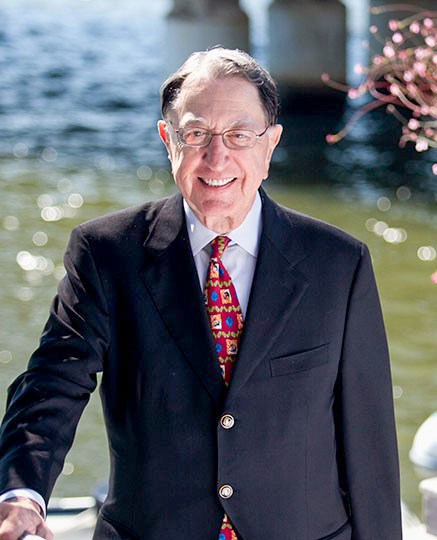
Credit: Tony Richards, Robert H. Smith School of Business, 2010. Rudolph Phillip Lamone was born on December 20, 1931, in Wellsburg (population 6,398 in the 1930 Census), a town on the east bank of the Ohio River in the panhandle of West Virginia. His parents, Domenico Lamone and Maria Branchi Lamone, had emigrated from the Abruzzi region of Italy. Like many Italian-American boys growing up in hardscrabble areas during the Great Depression, Rudolph and his younger brother Eugene acquired nicknames, Rudy and Beef.
As a teenager, Rudy became a proficient saxophonist and planned to be a professional musician. After he turned 16 and got his driver’s license, he would drive 45 miles to Pittsburgh, Pennsylvania, on Saturday evenings. Using the end of a burned Italian wine bottle cork, he would create a fake stubble on his face and lie about his age so that he could get into nightclubs through dimly lit rear entrances to sit in on jam sessions. After he graduated from Wellsburg High School in 1949, he toured the nation with different big bands. Eventually, he formed his own Rudy Lamone Band which opened for major acts at some area concerts.
During the Korean War, he enlisted in the U.S. Army in 1952. After he completed basic training, instead of being shipped to fight in Korea, he was held at Fort Bragg in North Carolina to play the saxophone for the 440th Army Band. After his three-year tour of duty was up in 1955, he was honorably discharged. With the change in music tastes from swinging big bands to rock and roll in the mid-1950s, Rudy decided to put aside his saxophone and give up on his dream of becoming a professional musician. Thus, he applied to Campbell College (now University) 30 miles away from Fort Bragg in Buies Creek, North Carolina. He was admitted and used the G.I. Bill to study business administration full time. He graduated three years later in 1958 with a bachelor of arts degree.
At the age of 27, he enrolled in the University of North Carolina (UNC) at Chapel Hill. He earned a master’s degree in business administration (MBA) and then a Ph.D. in the same subject in 1966. While attending UNC, he became a member of Phi Beta Kappa and Beta Gamma Sigma.
After graduation from UNC at the late age of 34, he applied for a position as an assistant professor and was hired to teach business courses starting in September 1966 at the University of Maryland in College Park. While teaching undergraduates, he met Linda Hefler who was studying marketing in one of his classes. After she earned her bachelor’s degree in May 1969, the 38-year-old Rudy married the 23-year-old Linda in mid-1970. They had no children.
Climbing the academic ladder, he was appointed dean of the Robert H. Smith School of Business beginning in the Fall of 1973 at the age of 41. He inherited a program with a mediocre reputation. It was also hampered by limited resources and overwhelmed by mostly average students. Prior deans spent their time fund raising and managing staff. Instead, Rudy’s primary focus was the students. He helped them with their personal problems and used his contacts throughout the nation to help them get good positions. He came to care for his students so much that he began to call them “my kids” since he had no kids of his own.
Rudy understood the evolving role of entrepreneurship in business. At that time, academics generally believed that entrepreneurship was a subject that was not important enough to study. However, to the contrary, Rudy thought that it should be a student major. Thus, Rudy established the Dingman Center for Entrepreneurship which was named in honor of Michael D. Dingman, a University of Maryland graduate who endowed the Smith School with a $1 million gift. The Dingman Center now helps launch 50 to 100 ventures every year. Rudy also created the Dingman Center Angels (DCA) to bring regional start-up companies seeking early-stage funding to the attention of local investors. The DCA was the first of its kind and is still the largest university-run angel investor network in the United States.
As a result of Rudy’s work, the Dingman Center was the first to receive the prestigious Nasdaq Award as a center of excellence in entrepreneurship from the Global Consortium of Entrepreneurship Centers. Rudy then co-founded the National Consortium of Entrepreneurship Centers and the National Consortium for Life Science Entrepreneurship Programs.
In 1976, Rudy was appointed to the Baltimore District Advisory Council for the Small Business Administration. In 1988, the Smith School of Business received the Outstanding National Educational Institutional Award from the National Black MBA Association because of Rudy’s recruiting of Black students who would earn MBAs. In 1990, Japanese entrepreneur Soji Kanazawa visited the Dingman Center and was so impressed by Rudy’s tour that he donated $300,000 to fund student exchange trips to Japan. He then returned to Japan and founded an entrepreneurship school modeled on the Dingman Center.
In 1992 at the age of 60, Rudy decided to retire as dean. Upon his departure, the Dingman Center established the annual Rudy Awards and the dining facility was renamed Rudy’s Café in his honor. Also, Leon Van Munching, a 1950 Maryland graduate, established the Rudolph P. Lamone Chair for Entrepreneurial Leadership. Additionally, colleagues and friends established the Rudolph P. Lamone Fund for Excellence in Entrepreneurship to help support innovative programs, student summer internships, new lecture series, and other student educational activities.
The couple then moved from College Park and settled in Annapolis on the Chesapeake Bay at the mouth of the Severn River. Not one to rest on his laurels, Rudy decided to practice what he preached. Rudy co-founded Direct Gene, Inc., an Annapolis biotech firm that develops gene therapies directed towards treating metastatic prostate and breast cancers. He also joined Gabriel Venture Partners in Annapolis. In 1996, the accounting firm of Ernst & Young named him Entrepreneur of the Year. In 1998, Rudy was awarded the President’s Medal by the University of Maryland. With the fortune that he made Rudy then established the Lamone Endowed Chair for Entrepreneurial Leadership. Despite his busy work schedule, Rudy would return to the Smith School from time to time to spend hours coaching and mentoring entrepreneurial students.
After selling his interest in Direct Gene, Inc., and withdrawing as a partner from Gabriel Venture Partners at the end of 1998, Rudy retired again at age 67. He then spent his time traveling and golfing with his wife, gardening, and cooking Italian dishes. He also maintained his memberships with the Naval Academy Golf Association, the Annapolis Yacht Club, and the Annapolis Center Club. As an Italian American, he said that he enjoyed spending his free time near the water, as he had done during his childhood.
In mid-2022, Rudy learned that the Princeton Review & Entrepreneur Magazine had ranked the undergraduate program in the Smith School of Business at the University of Maryland at No. 7 across all institutions and at No. 4 among public universities in the nation. On his 91st birthday at the end of 2022, he was informed that he would be inducted into the inaugural class of the Smith School of Business Hall of Fame in mid-2023. Unfortunately, shortly thereafter, Rudy contracted COVID-19 and died six weeks later, on January 30, 2023, in the Anne Arundel Medical Center in Annapolis.
Sources:
- Baltimore Sun, Obituaries, Saturday, March 18, 2023.
- University of Maryland News, Smith School Mourns Passing of Former Dean, Tuesday, January 31, 2023, www.rhsmith.umd.edu/news.
- Washington Post, Obituaries, U-Md. business dean formed its entrepreneurship center, at page B5, Saturday, March 25, 2023.
- Wellsburg, West Virginia, www.en.wikipedia.org/wiki/Wellsburg (accessed September 7, 2023).
July 2024
-
Annual Wine-Tasting Featured with a New Format
By Nancy DeSanti, 1st Vice President- Programs
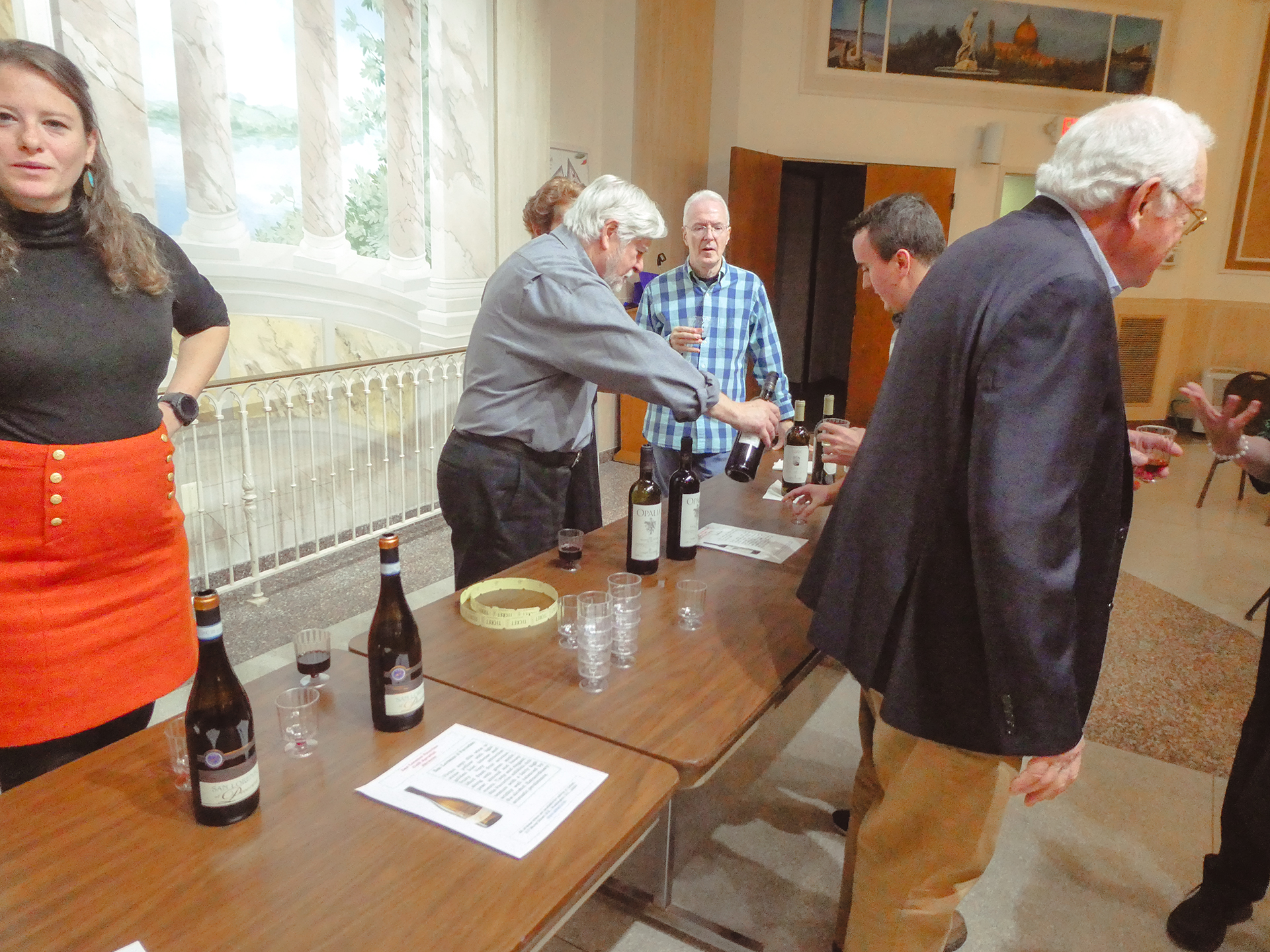
AMHS members and guest enjoying a sampling of wines from Abruzzo and Molise
Credit: Sam YothersOur annual wine-tasting, always one of our most popular programs, was a more freewheeling event this year. Held at Casa Italiana on November 19, 2023, the attendees not only tasted some wonderful wines from Abruzzo and Molise, they were also treated to a superb talk by the son-in-law of our board member, Frank Bonsiero.
We started with the election of officers and board members, conducted by our outgoing President Ray LaVerghetta. This important business was followed by a delicious lunch catered by one of everybody’s favorites, A. Litteri.
After lunch, the vice president for programs, Nancy DeSanti, told the audience about two equally good but very different wineries that are worth seeing and that she visited in Italy in October — one in Sicily and one in Campania.
The Zisola winery is located near Noto, Sicily, not far from Catania. It has become part of the Mazzei Wine Club, now that the Mazzei family of famous winemakers in Tuscany decided to make this location their first investment in the south of Italy. The family is especially famous for their ancestor, Filippo Mazzei, the Tuscan surgeon who moved to London and befriended Benjamin Franklin and John Adams, as well as Thomas Jefferson who eventually helped him to establish a winery near his home, Monticello, in Virginia.
The Feudi di San Gregorio winery is near Avellino in the region of Campania. It is a very contemporary winery that features an art gallery and has an elegant “wine tasting theater” that has sloping aisles seats with trays in front of the seats to hold the wine glasses and snacks. The building was designed by a Japanese architect who created a fresh, contemporary look.
Frank Bonsiero introduced his son-in-law, Zach Casagrande, noting that he is an orthodontist who was in on the ground floor of Invisalign 15 to 20 years ago but whose real passion is wine.
Zach is a sommelier with his own extensive wine cellar, and he had to pass a rigid exam to earn that title. He shared his knowledge with us about the Sangiovese grape in the wines of Abruzzo and Molise.
Zach gave a very informative and entertaining interactive talk that was so well-received by the audience that we invited him to come back next November, and he accepted.
Next up, Carmine Spellane told us about the wines he had selected for us to taste, with help from A. Litteri. They included the following:
- Principe Delle Roche
Montepulciano D’Abruzzo - San Lorenzo Pecorino
Colli Aprutini, Abruzzo - Opalia Tintilla del Molise
Campi Valerio, Monteroduni, Molise - Fannia Falanghina del Molise
Campi Valerio, Monteroduni, Molise
Please note that all four wines are for sale at A. Litteri, 517 Morse St., N.E., Washington, D.C., wwww.alitteri.com.
A special thanks is owed to Frank Bonsiero for arranging the talk by his son-in-law and to Carmine Spellane for coordinating with Litteri’s to obtain the wines. Also, a big thank you goes to our treasurer, Peter Bell, for handling the logistics of the lunch, to all those who donated raffle prizes, and to those who bought raffle tickets.
July 2024
- Principe Delle Roche
-
Castel di Sangro

By Nancy DeSanti
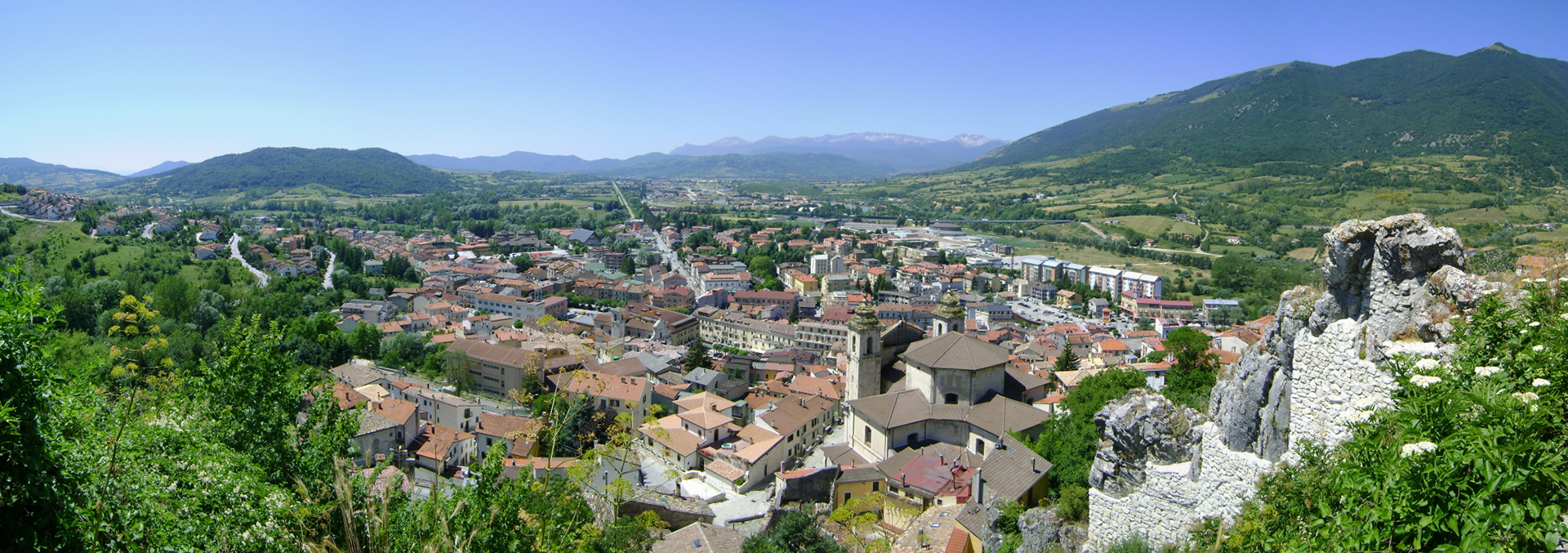
Panoramic view of Castel di Sangro
Credit: WikipediaProvince of L’Aquila, Region of Abruzzo
The beautiful small town of Castel di Sangro is located in the province of L’Aquila about 150 kilometers east of Rome. It is the main city of the area of Alto Sangro e Altopiano delle Cinque Miglia. The town is located near the Sangro River in a valley in the Apennine Mountains. It has approximately 6,461 inhabitants, known as Castellani.
Castel di Sangro is known as a charming town that boasts a rich history and a breathtaking natural landscape. Its origins can be traced back to medieval times when it was established as a defensive outpost.
Over the centuries, the town experienced various rulers, including the Lombards and the Kingdom of Naples, shaping its unique character and architecture. Castel di Sangro was known to the Romans as Aufidena, a city of the Samnites.The town gained some popularity in the mid-1990s thanks to the exploits of the local soccer club, Castel di Sangro Calcio. In 1996, Castel di Sangro’s remarkable rise from obscurity even prompted an American writer, Joe McGinniss, to spend an entire season with the club. While living and eating with the squad daily, he penned his book, “The Miracle of Castel di Sangro.” His book describes how the team made it up through five leagues to get to Serie B, the second-highest league in Italian soccer.
The town is surrounded by lush greenery, rolling hills, and the Apennine Mountains. This makes it an excellent base for outdoor activities like hiking, cycling, and birdwatching. The Parco Nazionale d’Abruzzo, Lazio, e Molise is nearby, offering more opportunities for nature lovers.
Lately, the town has been in the news as the hometown base of famed Italian chef, Niko Romito. Dozens of new Alt Stazione del Gusto restaurants are being planned along Italian roadways — with a menu by Romito, who has several Michelin-starred restaurants to his name.
Along with electric charging stations, the diner takes an eco-conscious approach with the help of Enilive. Solar panels produce most of Alt’s energy, and there are air and water filtration and recycling systems in place. In the kitchen, Romito follows standardized practices to ensure quality, which includes the bombe — they are crafted in Romito’s lab in Abruzzo, frozen, and transported to Alt, where they are heated and filled upon customer request, instead of sitting out on a counter all day.
Alt’s staff is made up of students trained at the Accademia Niko Romito, the chef’s vocational culinary school. With a pay-it-forward ideology, Romito’s team expects to train the next generation of Alt staffers.
The new Alt Stazione del Gusto in Rome is now open daily from 7 a.m. to 10 p.m., and it will soon be joined by additional Alt Stazione del Gusto outposts on all of Italy’s autostrade, with a plan to open 100 restaurants over the next four years.
What to See
- Basilica of Santa Maria Assunta
- Torre Medievale, a medieval tower
Important Dates
- August 27 — Feast of San Rufo
Italiano

Tradotto da Ennio Di Tullio
Provincia dell’Aquila, Regione Abruzzo
La bellissima cittadina di Castel di Sangro si trova nella provincia dell’Aquila a circa 150 chilometri a est di Roma. È il capoluogo della zona dell’Alto Sangro e dell’Altopiano delle Cinque Miglia. Il paese è situato nei pressi del fiume Sangro in una valle dell’Appennino. Ha circa 6.461 abitanti, detti Castellani.
Castel di Sangro è conosciuta come una ridente cittadina che vanta una ricca storia e un paesaggio naturale mozzafiato. Le sue origini si possono far risalire al periodo medievale quando venne istituito come avamposto difensivo.
Nel corso dei secoli la città conobbe diverse dominazioni, tra cui i Longobardi e il Regno di Napoli, che ne modellarono il carattere e l’architettura unici. Castel di Sangro era conosciuto dai romani come Aufidena, una città dei Sanniti.
La città ha guadagnato una certa popolarità a metà degli anni ‘90 grazie alle imprese della squadra di calcio locale, il Castel di Sangro Calcio. Nel 1996, la straordinaria ascesa di Castel di Sangro dall’oscurità spinse addirittura uno scrittore americano, Joe McGinniss, a trascorrere un’intera stagione con il club. Vivendo e mangiando quotidianamente con la squadra, ha scritto il suo libro “Il miracolo di Castel di Sangro”. Nel suo libro descrive come la squadra ha superato cinque campionati per arrivare alla Serie B, il secondo campionato più importante del calcio italiano.
La città è circondata da una vegetazione lussureggiante, dolci colline e gli Appennini. Ciò lo rende una base eccellente per attività all’aperto come escursionismo, ciclismo e birdwatching. Il Parco Nazionale d’Abruzzo, Lazio, e Molise si trova nelle vicinanze e offre più opportunità per gli amanti della natura.
Ultimamente, la città è stata nelle notizie come la città natale del famoso chef italiano Niko Romito. Decine di nuovi ristoranti Alt Stazione del Gusto sono in progettazione lungo le strade italiane, con un menu firmato Romito, che ha diversi ristoranti stellati Michelin al suo nome.
Insieme alle stazioni di ricarica elettrica, il ristorante adotta un approccio eco-consapevole con l’aiuto di Enilive. I pannelli solari producono la maggior parte dell’energia di Alt e sono presenti sistemi di filtraggio e riciclaggio dell’aria e dell’acqua. In cucina, Romito segue pratiche standardizzate per garantire la qualità, che includono le bombe: vengono realizzate nel laboratorio di Romito in Abruzzo, congelate e trasportate ad Alt, dove vengono riscaldate e riempite su richiesta del cliente, invece di stare sul bancone tutto il giorno.
Lo staff di Alt è formato da studenti formati presso l’Accademia Niko Romito, la scuola professionale di cucina dello chef. Con un’ideologia “paga in avanti”, il team di Romito prevede di formare la prossima generazione di membri dello staff Alt. La nuova Alt Stazione del Gusto di Roma è ora aperta tutti i giorni dalle 7 alle 22, e presto si aggiungeranno altri avamposti Alt Stazione del Gusto su tutte le autostrade italiane, con un piano di apertura di 100 ristoranti nei prossimi quattro anni.
Le attrazioni del luogo:
- Basilica di Santa Maria Assunt
- Torre medievale
Date da ricordare:
- 27 agosto — Festa di San Rufo
July 2024
